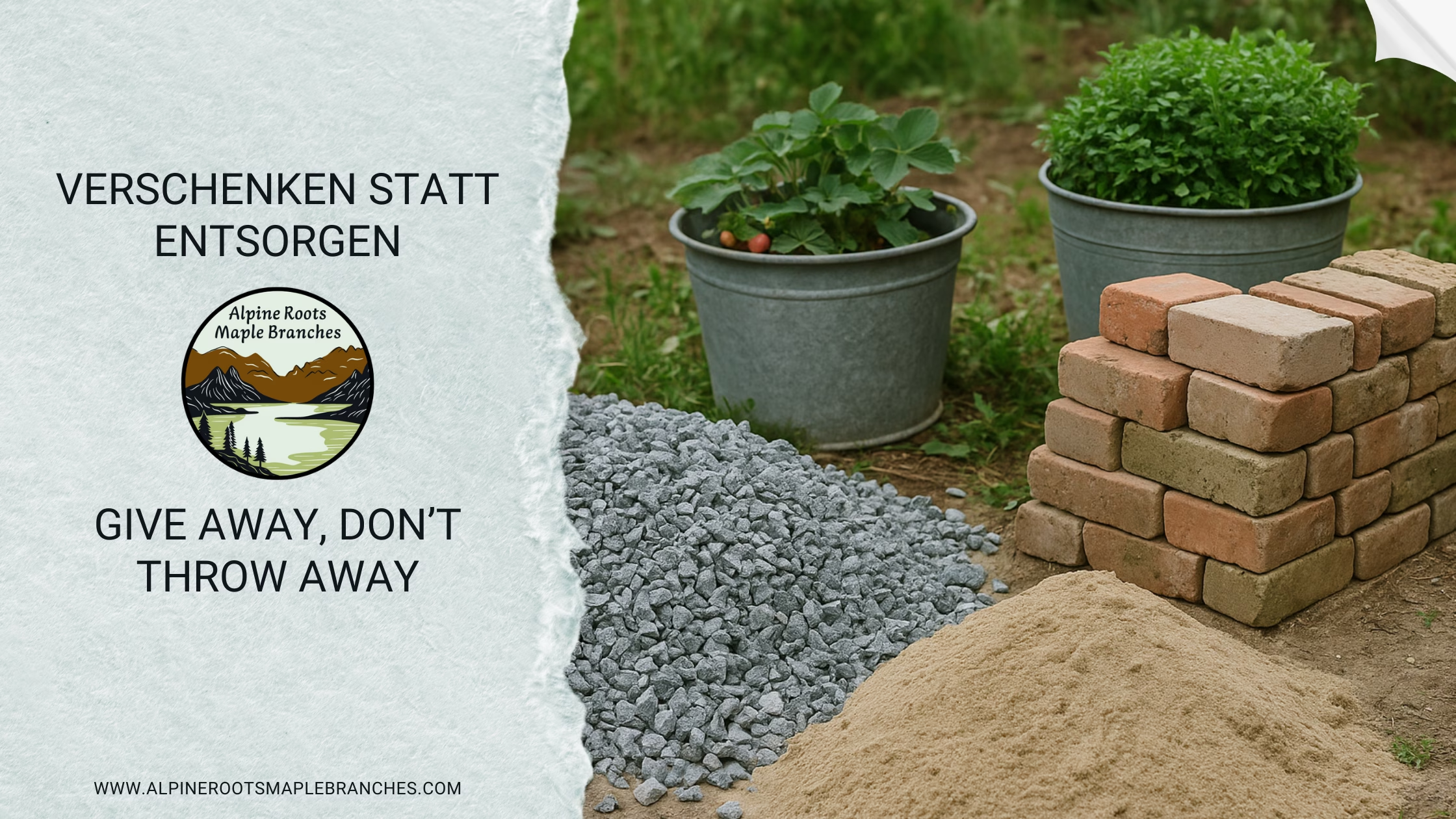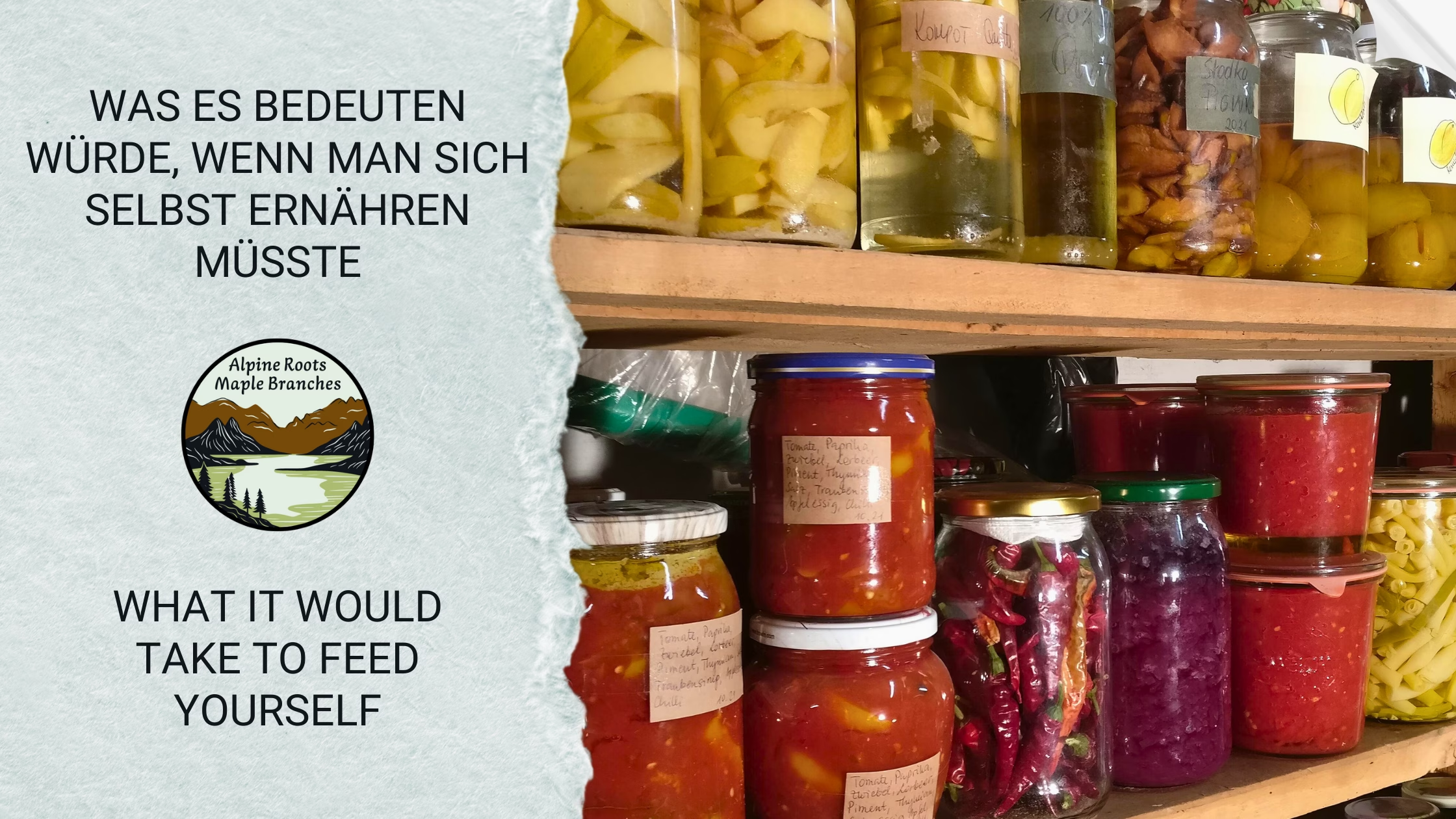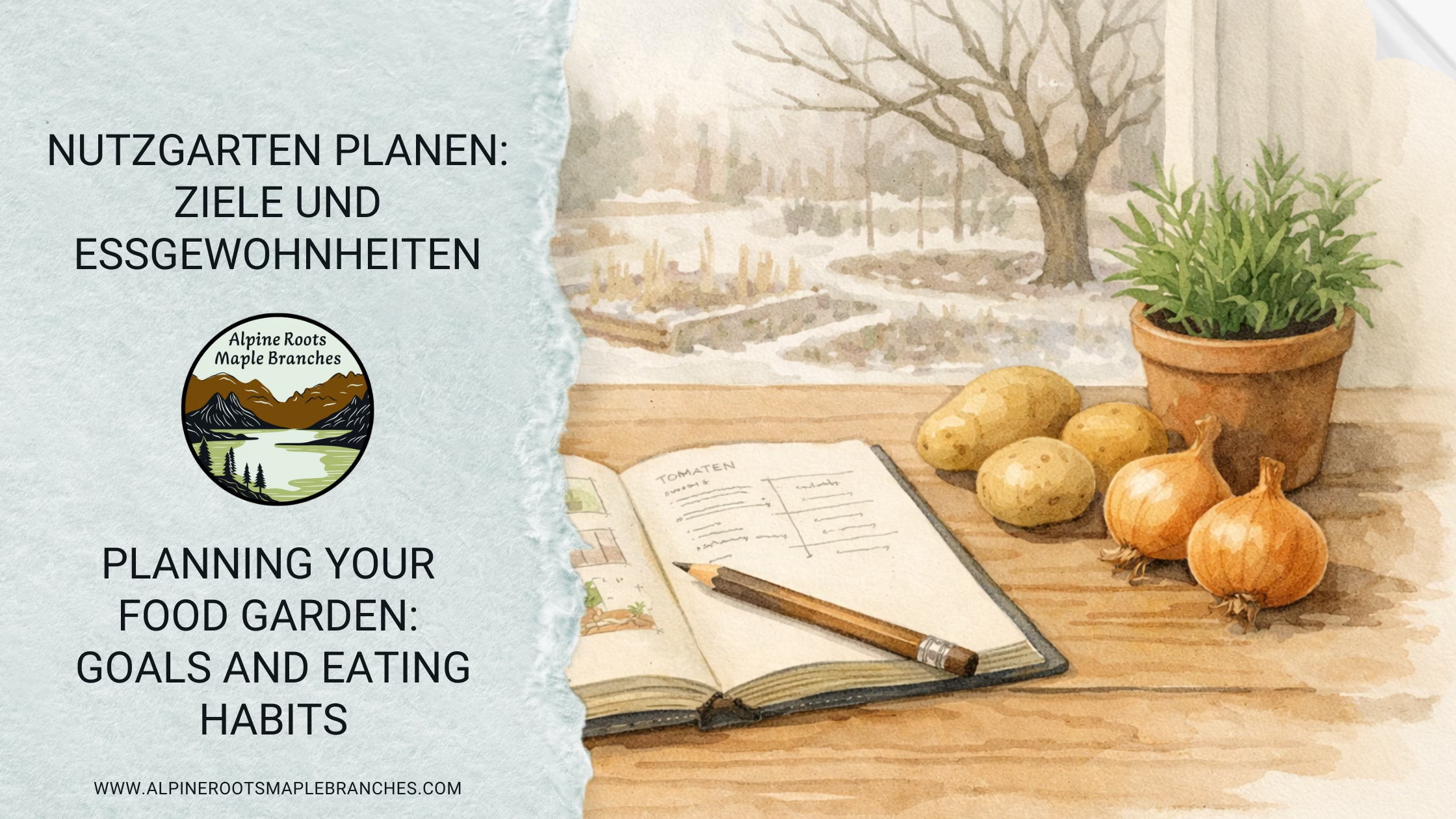From Gravel to a Woodshed Floor – and the Joy of Passing Things On
One of my favorite categories on classifieds platforms is “Free to Give Away.” Time and again, you come across items that may no longer have a place or purpose for their current owners but are still far from worn out. Especially for garden projects, these offers can be real treasures: leftover stones, gravel and sand from construction sites, old bricks or paving stones that were removed elsewhere. Many of these materials would probably have ended up at the landfill – and that is exactly why I find them so valuable.
In Austria, we have already completed many projects thanks to such finds. One example: our woodshed needed a solid base to avoid sinking into the mud whenever it rained. Instead of buying expensive construction materials, we found all the gravel, sand and stones we needed through “Free to Give Away” ads – everything free of charge, ready for pickup. The only cost was the rental fee for the trailer and my own labor to load, transport, and put it in place. In the end, we had a stable and functional floor for the shed – something we could hardly have built without these free offers.
But it’s not just about taking. Just as often, I’ve listed things myself that we no longer needed – from pots and buckets to leftover building materials and garden tools that no longer fit into our new routines. It feels good to know that these items are now being used somewhere else instead of taking up space or ending up as waste. What I especially love is when I get little messages or photos from the people who picked them up – maybe a picture of the stones now forming part of a new flower bed, or a note that the old materials are being put to regular use again.
This way of sharing not only saves money but also conserves resources and fosters connections with people in the community. Often, the pickup turns into a little chat, the exchange of tips, and sometimes even a new friendship. For me, these platforms are more than just places to buy or get rid of things – they are a small, lively exchange network where giving and receiving balance each other.
Austria vs. Canada – Popular Classified Platforms at a Glance
Austria
In Austria, Willhaben.at is the best-known and most widely used classifieds platform. It covers nearly every area of life: from real estate and cars to clothing, electronics, garden tools and building materials.
According to the analytics platform SimilarWeb (as of July 2025), however, Laendleanzeiger.at ranks highest in the category “Classifieds” (as labeled in the original ranking). The platform is particularly strong in Vorarlberg and western Austria, which explains why it achieves remarkable traffic numbers even if it is less well-known in other parts of the country.
Also very popular is Flohmarkt.at, which not only offers classic classifieds but also maintains a widely used flea market calendar – perfect for those who love to browse or sell at local markets.
And not to forget: Facebook Marketplace. Here, users can place ads or look for items directly within their social media environment. The integration with groups and friend networks makes it convenient, but it lacks some of the safety tools that specialized platforms provide.
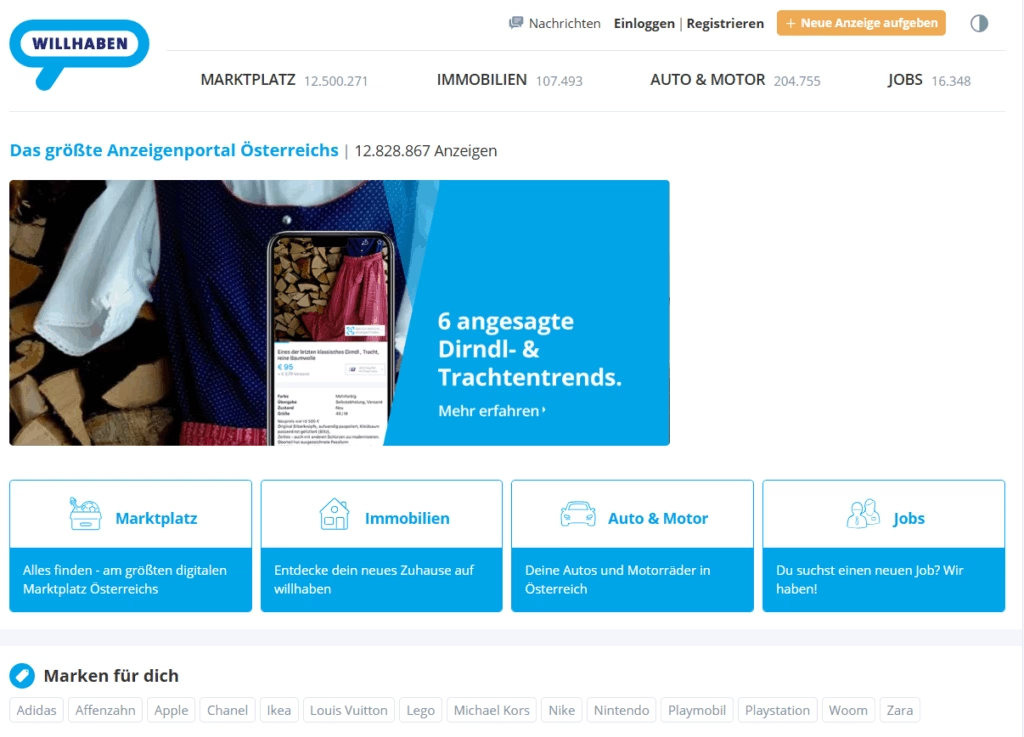
Canada
In Canada, the picture is clearer: Kijiji.ca is by far the market leader in classifieds. The platform offers a modern interface, detailed regional filters, and an enormous range of categories. From furniture and sports equipment to pet supplies – you can find almost anything.
Alongside Kijiji, there is Craigslist.org, which is internationally known and still actively used in Canada, although it appears much simpler in design and usability. Locanto.ca, LesPac.com (especially popular in Québec), and UsedVictoria.com are also active platforms, though their reach is much smaller compared to Kijiji.
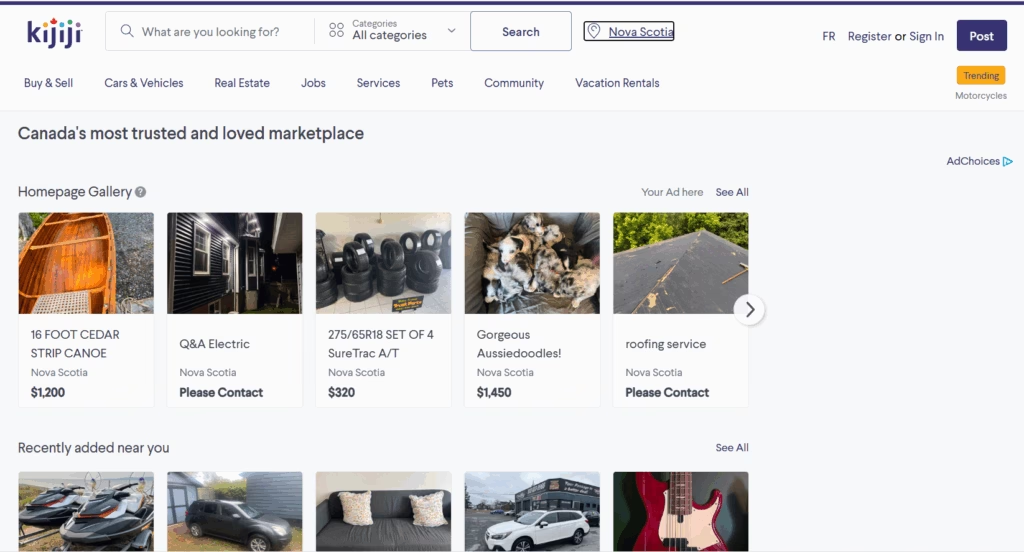
Why SimilarWeb as a Source?
SimilarWeb is an analytics tool that measures global web traffic and compares websites by visitor numbers, origin of users, and thematic categories. The data comes from a mix of browser plugins, internet providers, and public databases. The advantage: you don’t just rely on personal impressions but get an objectively measured picture of actual usage. For this article, I chose SimilarWeb because it doesn’t just highlight the big, internationally known platforms but also captures regional players like Laendleanzeiger – offering a more realistic overview.
Which Platforms Are Considered Reliable?
Austria
Willhaben – established, well-structured, broad user base.
Laendleanzeiger – high traffic numbers in western Austria, regionally anchored.
Flohmarkt.at – clear categories, easy navigation, plus the additional event calendar.
Facebook Marketplace – convenient through social media integration, but with fewer safety measures.
Canada
Kijiji – largest reach, modern filters, broad categories.
Craigslist – simple and direct, but with less strict moderation.
Warning – How to Spot Scams
The word “scam” comes from English and means fraud or swindle. It first appeared in American usage and probably derives from “scamp” (a rogue or trickster). Today, the term is used worldwide for fraudulent schemes on the internet – especially when someone tries to steal money or personal data using false promises, fake profiles, or unrealistic offers.

Common Red Flags
Unrealistically low price – far below market value.
Insistence on off-platform communication – e.g. WhatsApp, SMS, or external emails.
Unusual payment methods – gift cards, Western Union, cryptocurrencies.
Stock photos instead of original pictures – often exposed with reverse image search.
No pickup possible – justified with supposed emergencies or being abroad.
Links to external sites – fake payment or login pages.
Luxury goods at dumping prices – especially common with electronics and tickets.
Safer Practices
Always communicate within the platform.
Prefer in-person pickup.
Pay only after receiving the item or use a secure escrow service.
Check the seller profile – account age, reviews, previous ads.
Never share sensitive data.
Classifieds as Part of a Sustainable Culture
Digital marketplaces and exchange platforms are far more than just a way to shop cheaply. They reflect a mindset that saves resources and keeps things in circulation. What once might have been thrown away finds a second life – whether it’s building materials for a new garden path, furniture for another home, or everyday items given a fresh purpose.
The advantage is not only saving money but also the chance to consume more consciously. Passing things on prevents waste, reduces the need for new production, and contributes to a more sustainable lifestyle. At the same time, giving and receiving creates community beyond mere transactions: conversations, advice, and sometimes even mutual support.
Another key benefit is independence. Classifieds give access to materials and items that may be expensive or unavailable in retail. For garden or home projects, that can make all the difference. It teaches flexibility, sparks creativity, and fosters a new appreciation for items that once seemed of little value.
In this way, classifieds become a small but significant part of a culture that takes responsibility – for resources, for the environment, and for the social connections that grow in the process.

